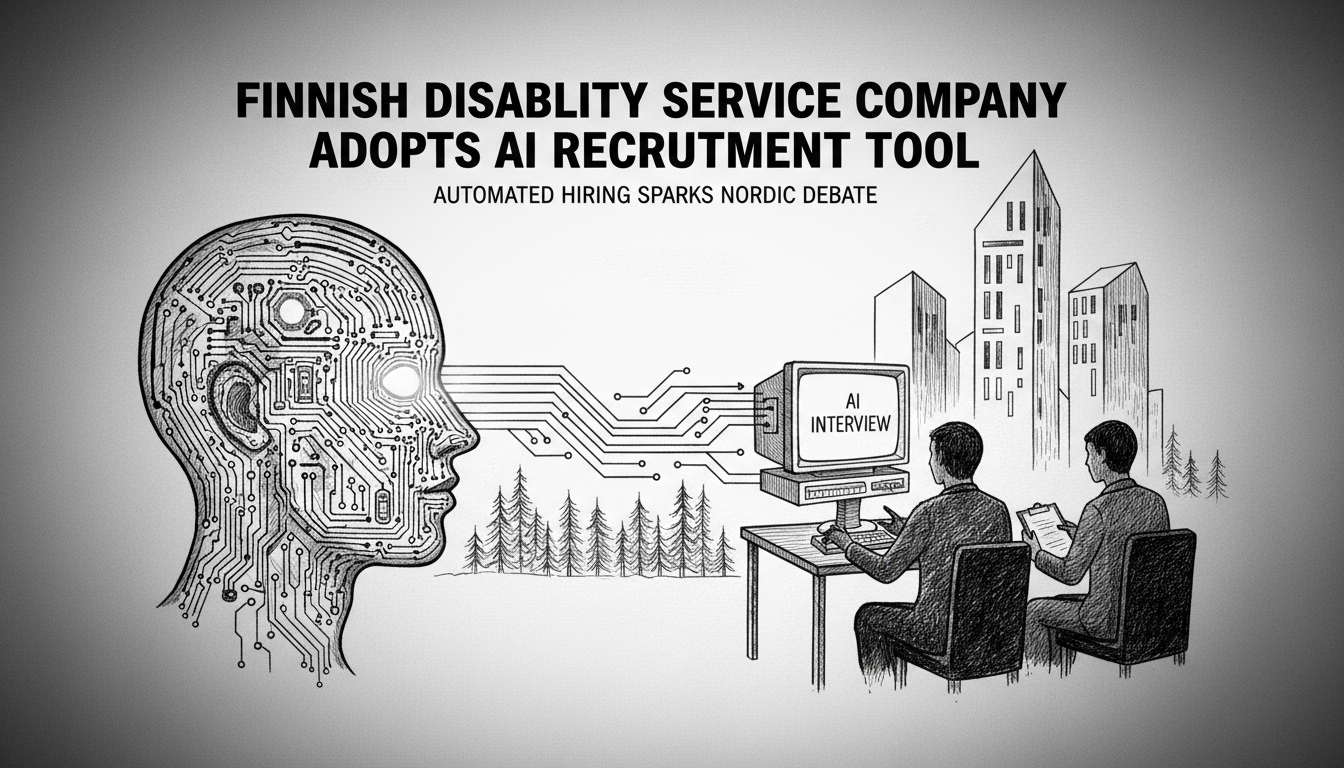A Finnish disability service company has begun using artificial intelligence to conduct initial job interviews with applicants. The company Validia now employs an AI recruitment assistant named Hubert to screen candidates through chat-based interviews that last 15-20 minutes.
The recruitment approach has sparked discussion on social media platforms where users expressed surprise at the automated interview process. Validia belongs to the Nordic Ambea group and implemented the AI tool earlier this fall.
After submitting an application, candidates participate in a chat interview with the virtual recruitment assistant. The company states that all applicants for the same position receive identical questions, similar to a traditional job interview but conducted through an interactive questionnaire format.
Validia officials explained that the AI system helps identify the most qualified candidates quickly. In high-volume recruitment situations, manually reviewing every applicant's responses would be practically impossible. The AI scores candidates based on education, experience, and motivation, though human recruiters make final hiring decisions.
The Hubert AI service markets itself as making recruitment processes faster while providing all applicants with interview opportunities. The tool aims to reduce the extensive work hours and resources typically required for reviewing applications and conducting initial screenings.
Company representatives emphasize that while AI assists in screening, it doesn't replace human judgment in final hiring determinations. The system can identify when candidates lack absolute requirements like specific educational credentials.
Proponents argue AI recruitment tools can help reduce human bias in hiring processes. Research shows job applicants with foreign names face significantly lower callback rates for interviews in Finland. The technology aims to bring consistency and data-driven assessment to initial candidate evaluation.
However, experts caution that AI systems may still contain biases. Timo Kämäräinen, a development director and AI tool developer, notes that AI trained on historical data might replicate existing prejudices related to gender, age, or ethnic background.
International research has demonstrated that AI language models can display discriminatory patterns. One study found AI systems might associate African American vernacular English with less prestigious jobs or higher likelihood of criminal behavior.
Hubert's website acknowledges that no AI can be completely unbiased but claims it's likely less prejudiced than human recruiters when evaluating candidates purely on qualifications and skills rather than appearance, age, gender, or ethnic background.
The adoption of AI recruitment tools reflects broader trends in Nordic labor markets where companies seek efficiency while navigating complex equality regulations. Finland has strong anti-discrimination laws, yet studies consistently show workplace discrimination persists across various demographics.
Recent research from Finnish authorities indicates discrimination in work or job seeking affects highly educated women most frequently. Age-related stereotypes also disadvantage applicants over 55, with employers sometimes assuming older workers perform worse or adapt poorly to new situations.
As AI recruitment tools become more common, questions about their fairness and transparency will likely intensify. The Finnish case demonstrates how Nordic companies balance technological efficiency with their strong traditions of social equality and worker protection.
The implementation at Validia shows how even service sector organizations focused on social care are embracing automation. This development raises important questions about how AI might reshape hiring practices across the Nordic region's traditionally egalitarian labor markets.

